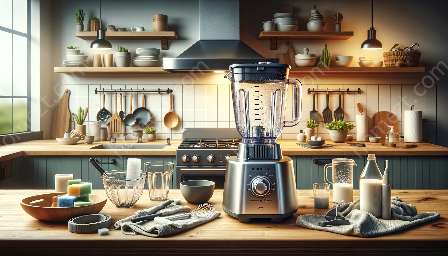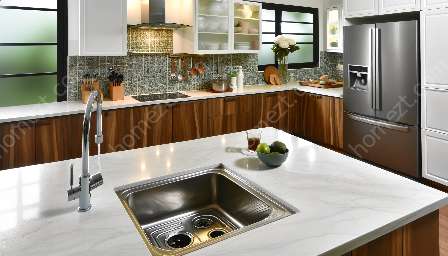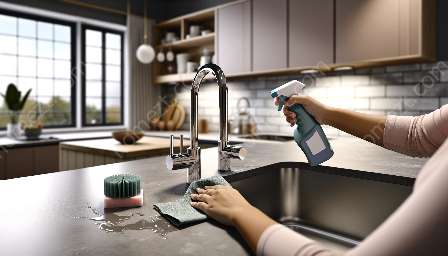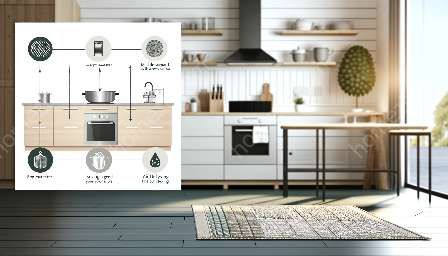Keeping your kitchen sink clean is essential for maintaining a hygienic and inviting cooking space. From removing stubborn stains to preventing foul odors, here's everything you need to know about cleaning kitchen sinks.
Why Clean Your Kitchen Sink Regularly?
Before diving into the cleaning process, it's important to understand the importance of keeping your kitchen sink spotless. Your sink comes into contact with various food particles, grease, and bacteria on a daily basis. Failing to clean it regularly can lead to the accumulation of germs, stains, and unpleasant smells.
Regular cleaning not only ensures a healthier environment but also helps in maintaining the sink's appearance and durability. By following the right cleaning techniques and using proper cleaning agents, you can achieve a sparkling clean sink and extend its lifespan.
Effective Cleaning Methods for Kitchen Sinks
There are several methods you can use to clean your kitchen sink, depending on the material it's made of. Here are some common sink types and the best cleaning practices for each:
Stainless Steel Sinks
Stainless steel sinks are popular for their durability and sleek appearance. To clean a stainless steel sink, start by rinsing it with warm, soapy water. You can then use a soft sponge or cloth to gently scrub the surface, focusing on removing any stubborn stains or mineral deposits. For tough stains, consider making a paste using baking soda and water, and then use it to scrub the affected areas. Rinse thoroughly and towel dry to prevent water spots.
Porcelain Sinks
Porcelain sinks are known for their classic, glossy finish. To clean a porcelain sink, begin by rinsing it with warm water to loosen any debris. Next, apply a mild abrasive cleaner or a mixture of baking soda and water to the sink surface. Gently scrub the sink using a non-abrasive sponge or cloth, paying special attention to any discoloration or stains. Rinse thoroughly and dry with a clean towel.
Composite Sinks
Composite sinks, made from a combination of materials such as quartz, granite, or acrylic, require gentle care to maintain their appearance. To clean a composite sink, use a mild dish soap and warm water to wipe down the surface. For tougher stains, consider using a non-abrasive cleaner recommended by the sink manufacturer. Avoid harsh chemicals or abrasive sponges that may scratch the surface.
Removing Stains and Odors
Despite regular cleaning, kitchen sinks can develop stubborn stains and unpleasant odors over time. Here are some targeted strategies for tackling these issues:
Stain Removal
To remove stains from your sink, consider using natural remedies such as lemon juice, vinegar, or baking soda. For example, you can slice a lemon in half and rub it over the stained areas to help lift the discoloration. Alternatively, create a paste using baking soda and water, and then apply it to the stains. Let it sit for a few minutes before gently scrubbing and rinsing the sink.
Odor Elimination
If your sink has developed unpleasant odors, freshen it up by pouring a cup of baking soda down the drain followed by a cup of distilled white vinegar. After allowing the mixture to fizz for a few minutes, flush the drain with hot water. Consider running a few lemon rinds through the garbage disposal to add a fresh citrus scent to your sink.
Maintaining a Spotless Sink
Once your kitchen sink is clean and free from stains and odors, it's important to establish a maintenance routine to keep it looking pristine. Here are some tips for maintaining a spotless sink:
- Wipe the sink dry after each use to prevent water spots and mineral buildup.
- Avoid leaving food debris or acidic substances in the sink for extended periods.
- Regularly clean and sanitize the sink's strainer and garbage disposal to prevent clogs and odors.
- Consider using sink protectors or mats to prevent scratches and dings.
By incorporating these practices into your cleaning routine, you can ensure that your kitchen sink remains a shining centerpiece of your culinary space.
Conclusion
Effective cleaning of your kitchen sink is crucial for maintaining a hygienic and visually appealing kitchen. By utilizing the appropriate cleaning methods, tackling stains and odors, and establishing a maintenance routine, you can enjoy a sparkling clean sink that enhances the overall look and functionality of your kitchen.


















































